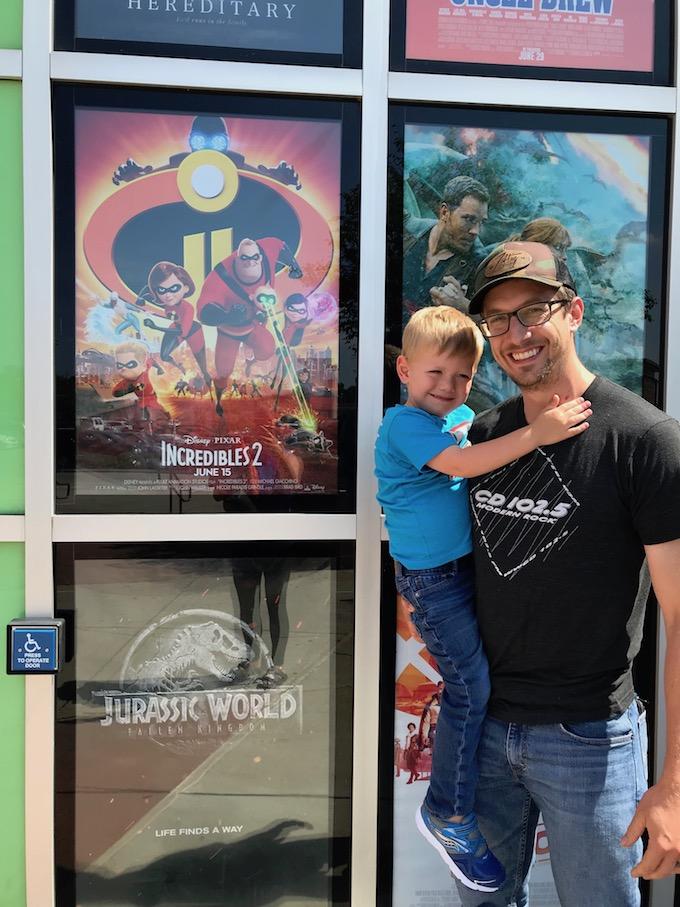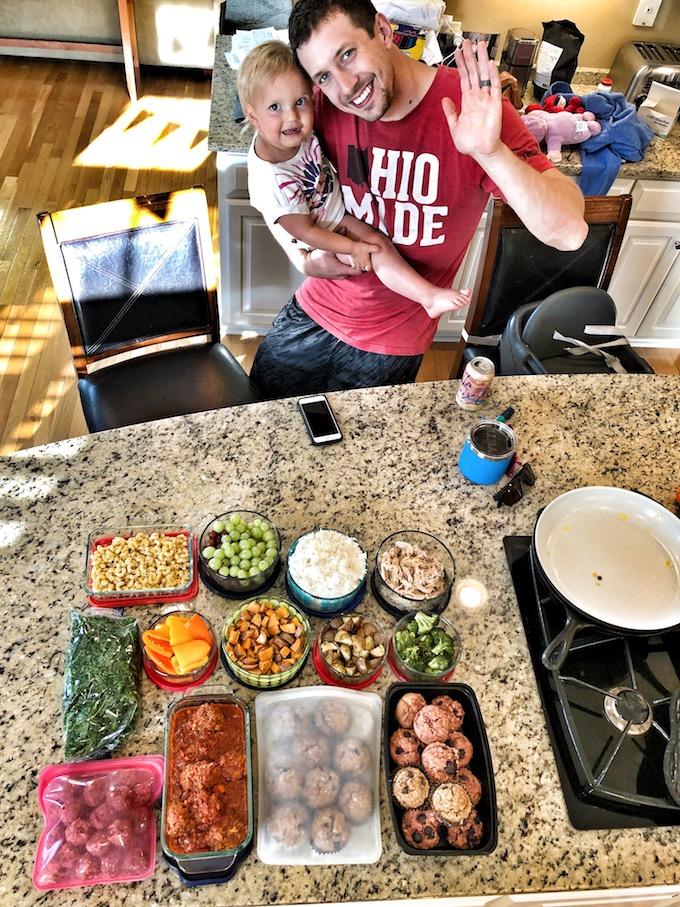
Hi friends!
Some have you have asked for an update on how my husband is doing since his diagnosis with Type 1 diabetes. Read his story here. He's taking over the blog today to give you guys an update about some of the things he's learned over the past 4 months, as well as some of the things we think everyone should know and be aware of when it comes to diabetes!
On March 9th, I drug my sluggish, thirsty, insatiably hungry, constantly urinating, 33-year-old body to the doctor for my annual physical. I had convinced myself that I had a thyroid issue because I didn't want to believe I could have diabetes, even though my wife had already suggested the possibility… My doctor called me back within the hour and told me to go to the ER because my blood sugar was over 400mg/dl (100 is normal). It was definitely diabetes, and I was devastated.

Four months in, I can confidently say to anyone else recently diagnosed with Type 1 Diabetes: "EVERYTHING IS GOING TO BE OK! YOU ARE IN CONTROL!"
I've cried twice since I got diagnosed. The first time was when I was calling my wife to tell her we needed to head to the ER, and calling my Mom to ask her to watch the kids. I think it was just the shock that something seriously bad had happened within my body and it would never be the same. I had tears rolling down my face as I drove.
The second time, I was reading a book that began by highlighting how diabetics are at higher risk for dozens of terrible afflictions. This was probably four days in. I had remained uncharacteristically calm and rolled with the punches up to this point- the punches primarily being adding insulin, needles, and lancets into my life. I was trying to arm myself with more knowledge and was taking the initiative to educate myself. Too much, too soon. The levee broke. I put that book down and lost it. I started sobbing uncontrollably. I was thinking about my kids, my wife, and how their healthy and physically fit father/husband had been leveled to a heap of rubble.
However, with a little more experience and education, I learned that diabetics WHO DON'T HAVE GOOD CONTROL OF THEIR BLOOD GLUCOSE, are at much higher risk for those things. Simplified, blood with a lot of sugar in it is bad. It's thicker. It's like a sludge gumming up your body/engine. Hurting capillaries in your eyes, nerves, your organs- it's not good.

Luckily, I've been able to learn the ropes pretty quickly, and I'm happy to say my A1C is already back down from my initial 12.7% to 5.9%! (That's good). Now I actually believe my mantra. "EVERYTHING IS OK! I AM IN CONTROL!"
Learning about diabetes has kind of been like trying to take a sip from a firehose, but wanted to share some thoughts on my 4-month crash course of adjusting to this new lifestyle.

What I've learned over the past few months
I really knew nothing about diabetes- and a lot of people don't. Here's what I thought I knew:
- My grandma had Type 2
- TRUE (maybe?) She was told she had Type 2, but based on what I've learned, she definitely could have had Type 1 as some people are misdiagnosed as Type 2 when they are in fact Type 1 or 1.5.
- Kids get Type 1 and Adults get Type 2
- FALSE. I honestly didn't think I could get Type 1 at age 33. This disease does not discriminate based on age. You can get it at any age.
- Diabetics need Insulin
- Type 1 yes, Type 2 maybe.
- People who have it just get an insulin pump and it handles it.
- FALSE. And SO very false indeed. My good friend in high school had an insulin pump and I never really asked about it. I thought it just did everything for her. Now I realize how wrong I was. If anything, the pump really just minimizes the number of times you need to pierce your skin. You still need to count carbs and bolus. You adjust settings and rates based on what you're doing. It's still a lot of work and you should high-five any type 1 friends you have for working around the clock to keep their numbers in check, whether they have a pump or not.
Here's what I think most people think they "know" about diabetes:
- Wilford Brimley says "Diabeetus"
- This is True
- You can't drink alcohol
- FALSE. You can, you just have additional concerns that most people don't need to think about. I've found that red wine has basically no impact to my blood sugar and am able to drink some types of beer, while others spike my blood sugar no matter how I time it or how much insulin I take. It's a trial and error process that's different for everyone.
- You get it because you eat too many donuts
- False for Type 1, but eating habits can definitely play a role in the development of Type 2.

Here are the KEY points that most people can't articulate:
- Difference between Type 1 and Type 2
- Type 1- Body stops making insulin. You have a bum pancreas so you must act as your own pancreas and take insulin.
- Type 2- Body becomes resistant to insulin. Your pancreas is likely cranking out a ton of insulin, but it's still unable to regulate your blood sugar because your body is resistant to it. This can often be mitigated by diet and exercise but oral medication or injected insulin may still be required.
- What is Insulin?
- It's a hormone that transfers glucose from your blood to your cells. It's essentially how you get energy from the food you eat. When you don't have enough, sugar hangs out in your bloodstream until it builds up and your body tries to filter and pee it out. That's why constant urination is a symptom. And of course, FATIGUE, since you are not getting much-needed glucose into your cells.

And here are my main takeaways since being diagnosed:
- It's SO IMPORTANT to know the signs, no matter who you are. You could be the key to saving somebody. It could be a friend, a friend's child, your own child. Encourage them to go to the doctor if you notice or hear them complaining about:
- Constant Thirst
- Frequent Urination
- Fatigue
- Rapid weight loss
- Complaints of blurry vision
- Your health and lifestyle are such an important buffer against the unexpected.
- I think more than anything, I can credit my lifestyle for bouncing back quickly from my initial diagnosis. I had lost 20 pounds. Because I was already exercising and eating well, really the only thing that changed for me was having to take insulin. I easily gained the 20 pounds back and am feeling great again. An active, healthy lifestyle is also so important.
- Attitude is everything.
- Your efforts are better spent attacking diabetes head-on than wallowing in self-pity. I've focused on figuring out how to thrive with this condition and that's made it easier to tackle on a day-to-day basis.
- It's a full-time job.
- There are no days off. It's rare that more than an hour or two goes by where I don't think about my blood sugar.
- You can adapt to diabetes quickly.
- After only 4 months, it's already like second nature. Counting carbs. Bolusing and timing insulin. Knowing how your glucose will react to different foods. Knowing how to adjust your insulin if you're going to be doing different activities like yard work or cleaning the house. It's hard to believe I didn't even know what Type 1 diabetes was at the beginning of March.
- Diabetes won't hold you back, you just have to plan around it.
- I have juice boxes stashed everywhere. Sometimes I have to turn around and go back to the house if I forget my insulin. But at the end of the day, I'm doing the things I want to do, they just require a little extra planning.
- If it had to happen to me, thank God it happened to me at this point in my life.
- I would not have had the discipline, ESPECIALLY AS A COLLEGE STUDENT, to deal with this. I once ate an entire "Barnyard Buster" at TeeJays country place and a Steakburger platter at Steak and Shake during a night of drinking. If you're local to central Ohio you know how disgusting that is. Shout out to all the T1Ds who were able to manage adolescence and college years carrying this heavy responsibility.
–Lindsay–
Original Content: Living with Diabetes: What You Should Know
No comments:
Post a Comment